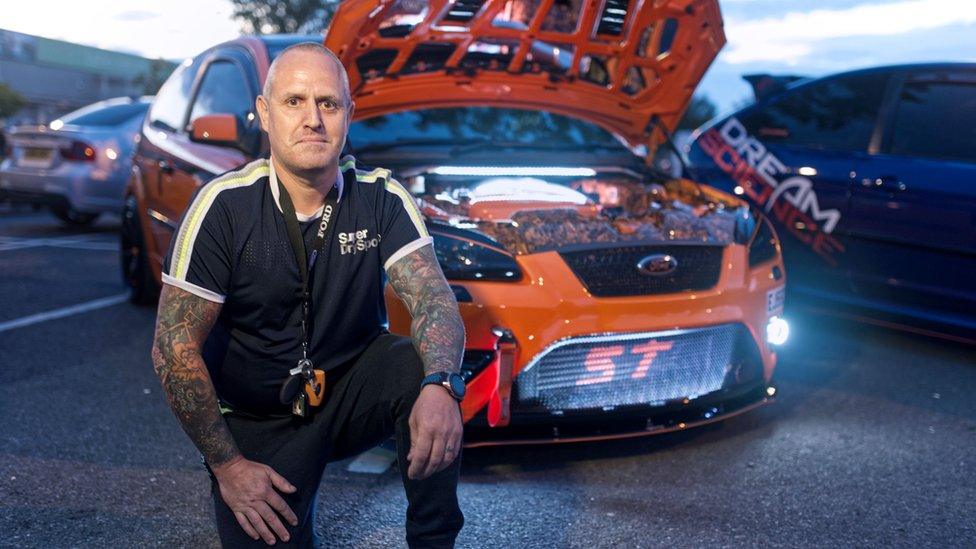Great Yarmouth: What will a noise-detecting camera mean for the town?
- Published
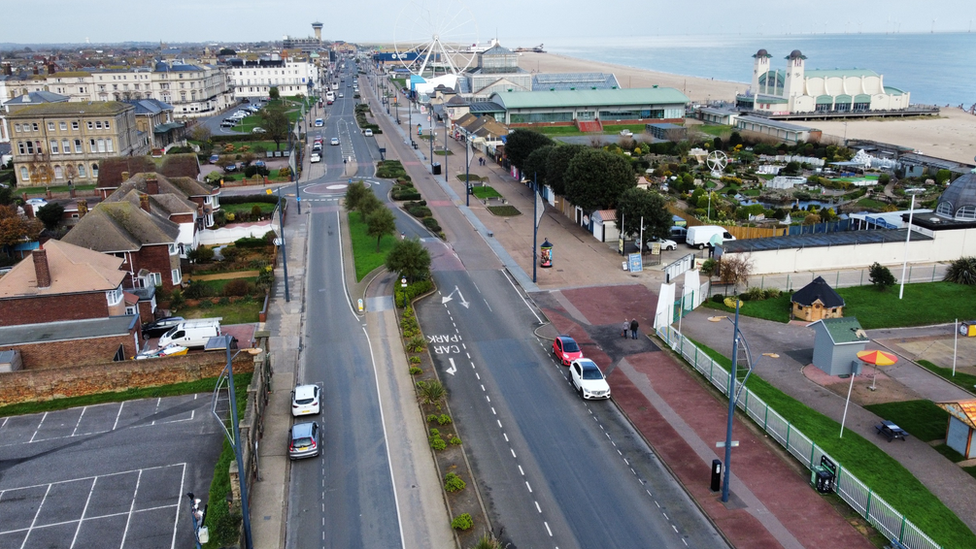
Great Yarmouth's seafront Marine Parade has been chosen as one of four English locations for the trial
A noise-detecting traffic camera is being piloted in Great Yarmouth to target "anti-social" drivers revving engines and using illegal exhausts. What will it mean for the seaside resort and why is a neighbouring village calling for a similar scheme?
Marine Parade in Great Yarmouth is one of four places in England chosen for the £300,000 Department for Transport trial, external.
It uses a video camera and a number of microphones to pinpoint excessively noisy vehicles as they pass by.
This will detect drivers who break the law by revving their engines unnecessarily or using illegal exhausts.
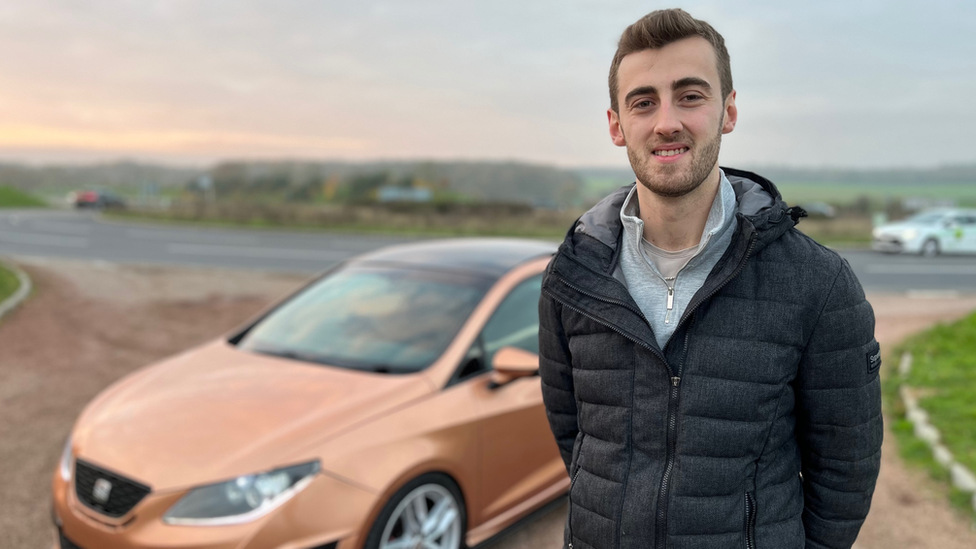
Car enthusiast Matthew Harvey thinks money spent on the trial could be better used
"It's a sticking plaster, not a solution to problem," according to Matthew Harvey, who is part of the "massive and growing" car enthusiast community.
He has spent £20,000 modifying his car, which is fully insured and roadworthy.
"We see these cars as extension of our personalities, we put time, money and effort into them," he says.
In the five years since he took up the hobby, he believes there has been "cultural change", but is not in favour of "just fining people when they could educate people".
"The money [spent on the camera] would be better spent on an outreach programme and a safe space for car enthusiasts, where the police and councils can be involved to develop that relationship," he says.
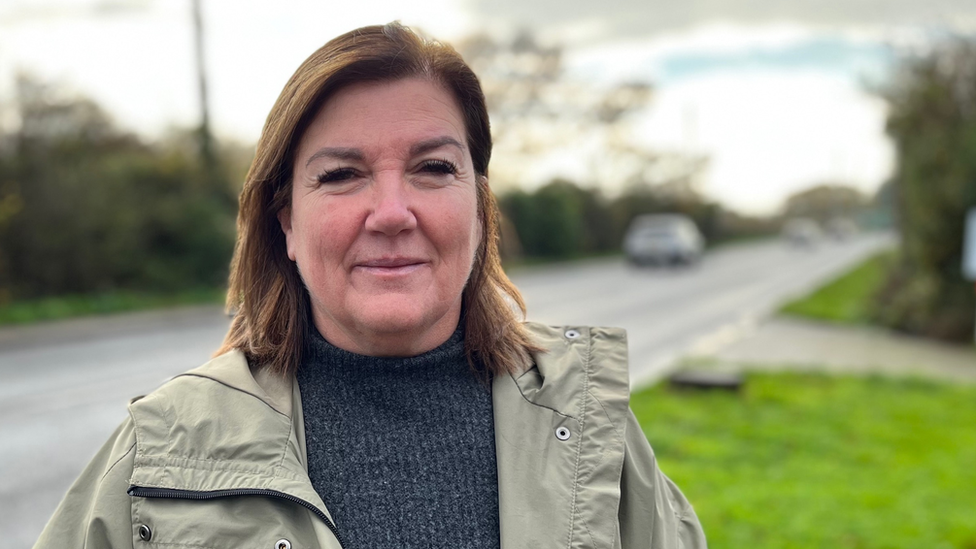
Speeding and noise along the A12 at Kessingland goes on all evening and into the night, according to Andrea Brown
Andrea Brown, from Kessingland, near Lowestoft, Suffolk, about 15 miles (24km) south of Great Yarmouth, was "disappointed" the A12 through her village was not chosen for the trial.
"They are out there racing until the early hours of the morning, especially at the weekend when it's worse as it's having an impact on sleep," she says.
She is also worried the speeding will cause a "serious injury or fatality at some point".
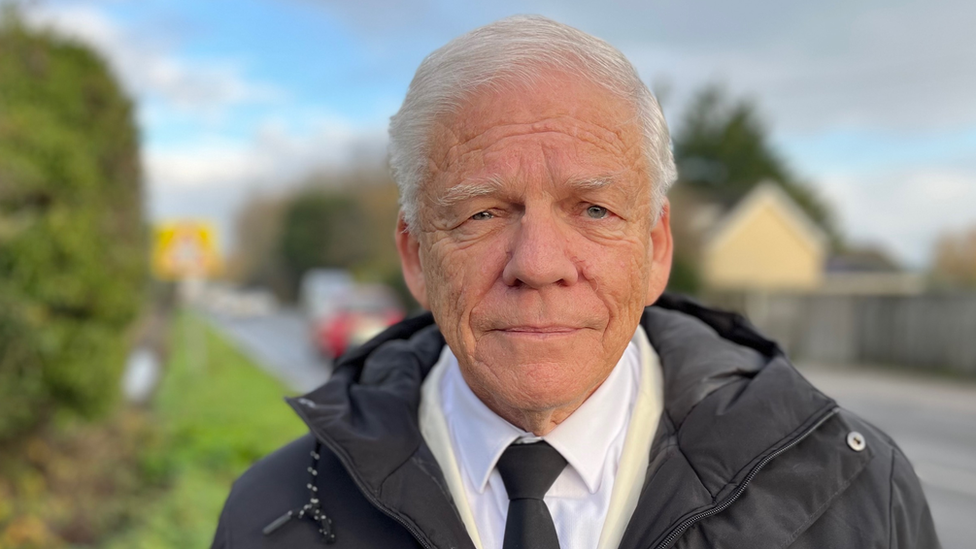
Chris Thomas wants "something to be done, whether it's a noise cameras or ANPR or average speed cameras or fixed speed cameras"
Fellow resident Chris Thomas, chair of the campaign group Residents Against Noise and Speed in Kessingland, agrees.
He says: "We'd like to pursue it as one of the options for eliminating the problem of speeding down here.
"We know that boys will be boys, but what would be nice is for them to go somewhere where it's legal and safe to do it."
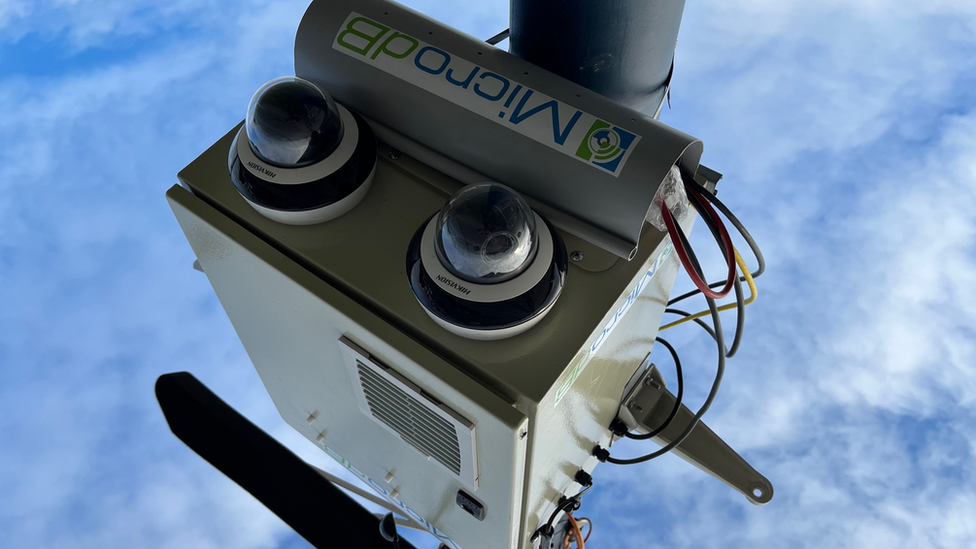
The noise detecting camera uses a video camera and a number of microphones to detect excessive noise
Sgt Dan Smith, from Norfolk Police, says the noise-detecting camera will be "a piece of the puzzle".
"There is not one thing that solves policing problems and community issues... but it'll really help and support what we do," he says.
He adds the police had worked with Great Yarmouth Borough Council to get a public place protection order in place and this had helped reduce the number of anti-social drivers in the town.
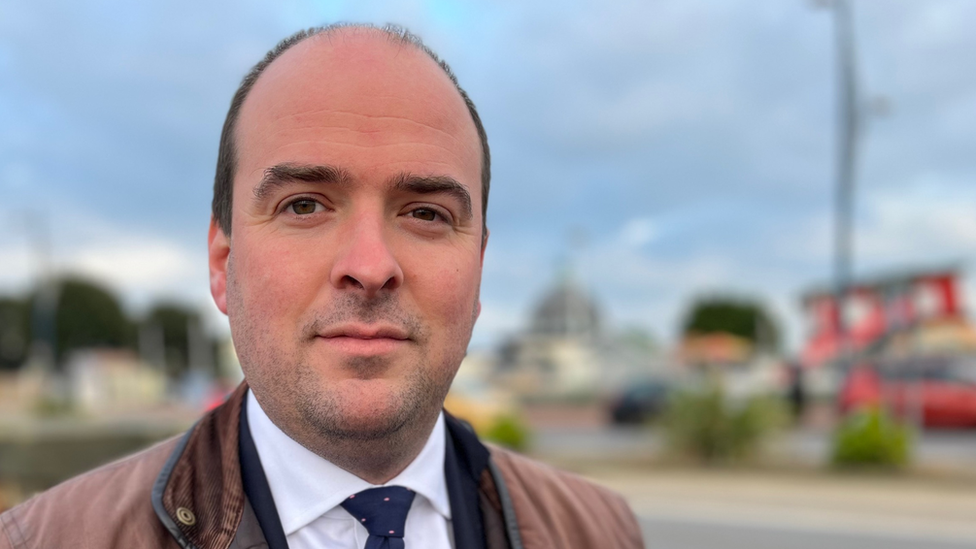
Roads minister Richard Holden hopes the trial will help police clamp down on thoughtless drivers who over-rev their engines
If the technology is successful during the trial, it could lead to prosecutions and the cameras rolled out elsewhere once legislation is put in place.
Roads minister Richard Holden said: "Boy racers with their souped-up cars are an anti-social menace in Great Yarmouth and across the country.
"This is the third of four trials and then there will be a lot of analysis of the findings and we hope that if it is successful, we'll be able to see more of these cameras, particularly in hot-spots."

Find BBC News: East of England on Facebook, external, Instagram, external and Twitter, external. If you have a story suggestion email eastofenglandnews@bbc.co.uk, external
Related topics
- Published1 December 2022
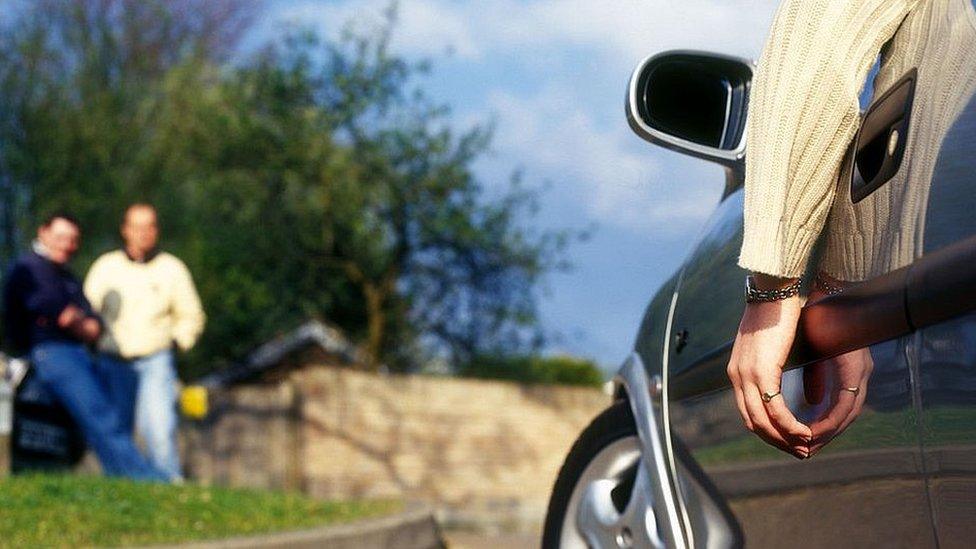
- Published18 October 2022
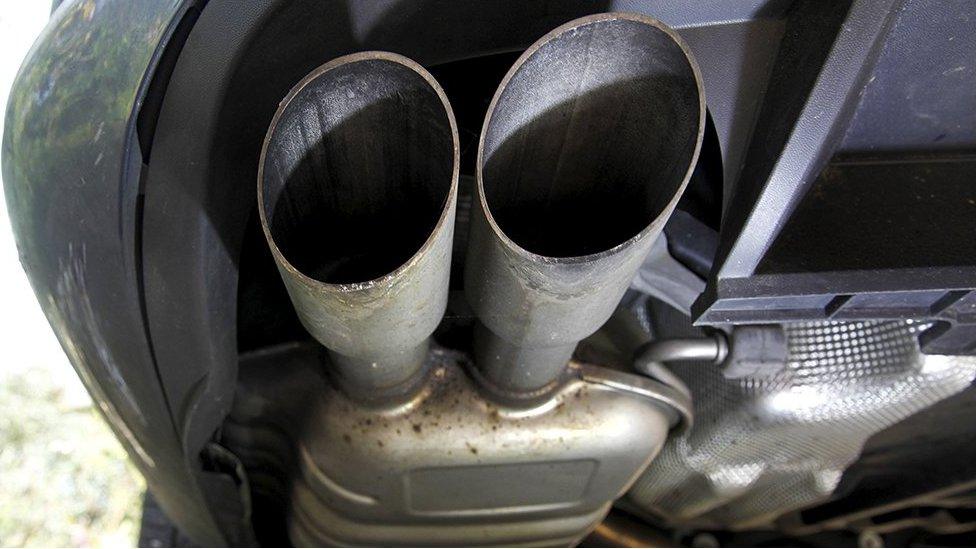
- Published25 July 2021
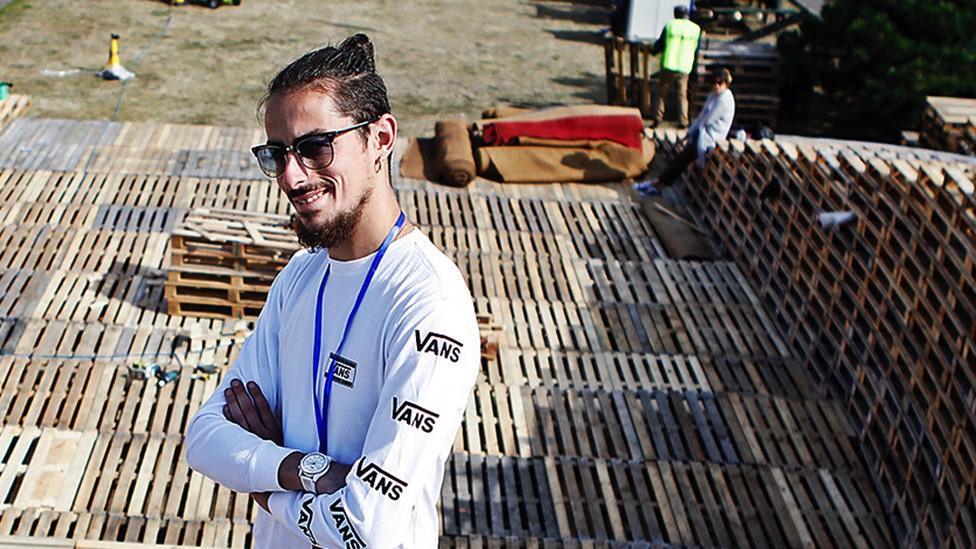
- Published31 July 2019
